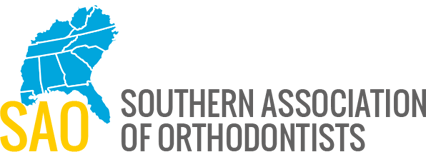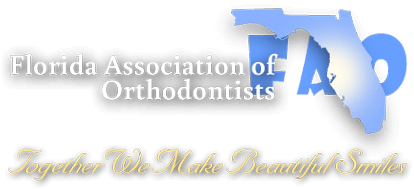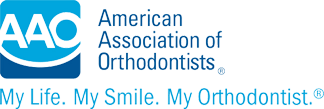Avoiding Delays in Orthodontic Treatment: What Patients Need to Know
September 29th, 2025
At Family Orthodontics of Jupiter, we know that starting orthodontic treatment is both exciting and sometimes overwhelming—especially when thinking about how long you’ll need to wear braces or Invisalign clear aligners. The truth is most delays or setbacks during orthodontic care can be minimized or avoided with the right approach. Our team is dedicated to helping patients throughout Jupiter, Tequesta, and Jupiter Farms achieve timely results with a positive, stress-free orthodontic experience.
Whether you’re considering metal braces, clear braces, or Invisalign, understanding what causes delays and how to prevent them is crucial for successful orthodontic treatment. Following, we outline the common reasons for extended wear time and what you can do to keep your journey to a perfect smile on track.
Common Setbacks That Prolong Braces or Invisalign Treatment
Disruption in your orthodontic timeline can happen for several reasons. Some stem from oral health, while others relate to lifestyle or adherence to your personalized treatment plan. Let’s take a closer look:
- Missed Appointments: Skipping scheduled visits can prevent necessary adjustments, leading to longer treatment times.
- Broken Braces or Loose Brackets: Damaged braces, wires, elastics, or attachments require extra repairs that often mean additional appointments.
- Poor Oral Hygiene: Not brushing and flossing well can result in cavities or gum problems, forcing a pause or modification of your plan until your mouth is healthy enough.
- Inconsistent Wear of Appliances: If you’re using Invisalign aligners or similar removable devices, failure to wear them as directed drastically slows progress.
- Dietary Choices: Eating food that’s overly hard, sticky, or chewy can cause braces or wires to break, leading to setbacks.
- Forgetting Rubber Bands or Elastics: These small but powerful tools play a huge role in shifting teeth; failing to use them as prescribed extends your timeline.
How To Avoid Delays and Finish Orthodontic Treatment On Time
We at Family Orthodontics of Jupiter recommend that all patients follow these steps for a smooth and timely orthodontic journey:
1. Never Skip Orthodontic Visits
Our orthodontic office schedules appointments for regular tightening, adjustments, and progress checks. Each visit is an essential milestone in moving teeth safely and efficiently. Attending every scheduled checkup is the simplest way to prevent unnecessary delays. If a conflict arises, contact our office as soon as possible to reschedule promptly.
2. Protect Your Braces and Appliances
Be mindful of what you eat, especially during the initial days after braces placement or adjustment. Avoid biting into hard foods like apples or candy and steer clear of sticky foods like caramel and gum. Before eating anything you’re unsure about, ask our staff for guidance—we’re happy to help you make smart dietary choices that protect your orthodontic appliances and avoid emergency visits.
3. Practice Exceptional Oral Hygiene
Brush after every meal using a soft-bristle toothbrush and fluoride toothpaste, focusing on the gumline and around brackets or aligners. Floss daily using floss threaders or water flossers. This keeps your teeth and gums healthy for orthodontic movement and prevents cavities—a primary cause of treatment delays.
4. Wear Your Invisalign Aligners or Removable Appliances as Directed
Compliance is key when it comes to Invisalign or any removable orthodontic devices. Wear your aligners for at least 22 hours per day and only remove them for eating, drinking non-water beverages, or cleaning. Skipping days or leaving them out for longer than recommended will push back your finish date.
5. Use Elastics and Rubber Bands Consistently
Elastics create the force needed to shift teeth and jaws into proper alignment. Follow our instructions carefully—wear elastics exactly as prescribed, and call us if you misplace them for quick replacements.
6. Inform Us Immediately of Problems
If any part of your braces break or becomes uncomfortable, don’t wait for your next visit. Reach out to Family Orthodontics of Jupiter right away for advice or an emergency appointment. Prompt repairs keep your treatment moving smoothly.
7. Avoid Damaging Habits
Chewing on pens, biting nails, or opening bottles with your teeth can damage your orthodontic appliances. If you play sports, wear a mouthguard to protect your braces and teeth from injury.
The Importance of Communication With Your Orthodontist
Orthodontic treatment is a partnership. We are always here to answer questions, provide solutions, and support you every step of the way. The more proactive and open you are about your concerns or schedule changes, the faster we can address issues and keep your treatment progressing.
Your Journey to a Perfect Smile Starts Here
At Family Orthodontics of Jupiter, we strive to help patients finish their orthodontic journeys efficiently and comfortably. By following these tips and communicating openly with our team, you can keep setbacks at bay and enjoy your dazzling new smile as soon as possible. Contact our Jupiter office today for a complimentary orthodontic consultation and personalized guidance on maintaining top-notch progress with your braces, clear aligners, or other orthodontic appliances.
Smiles are perfected every day at Family Orthodontics of Jupiter!












